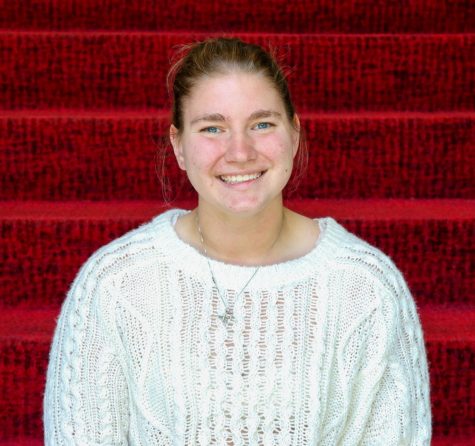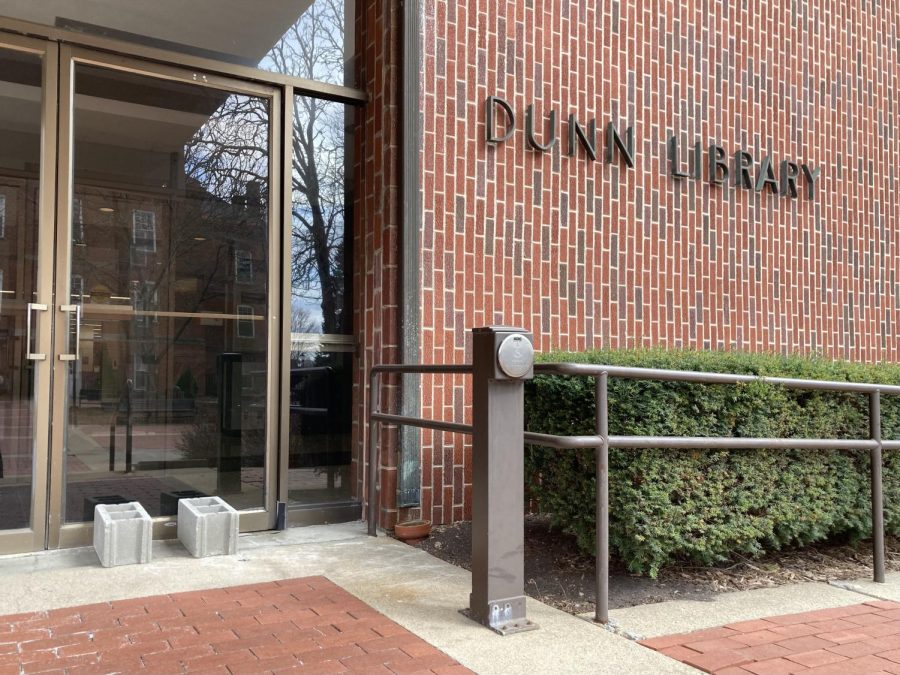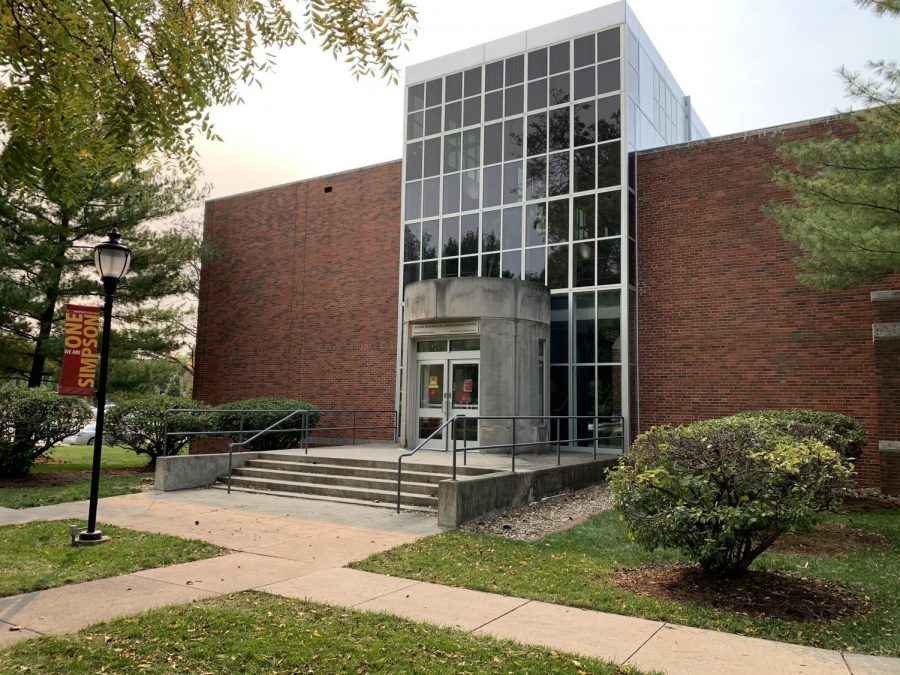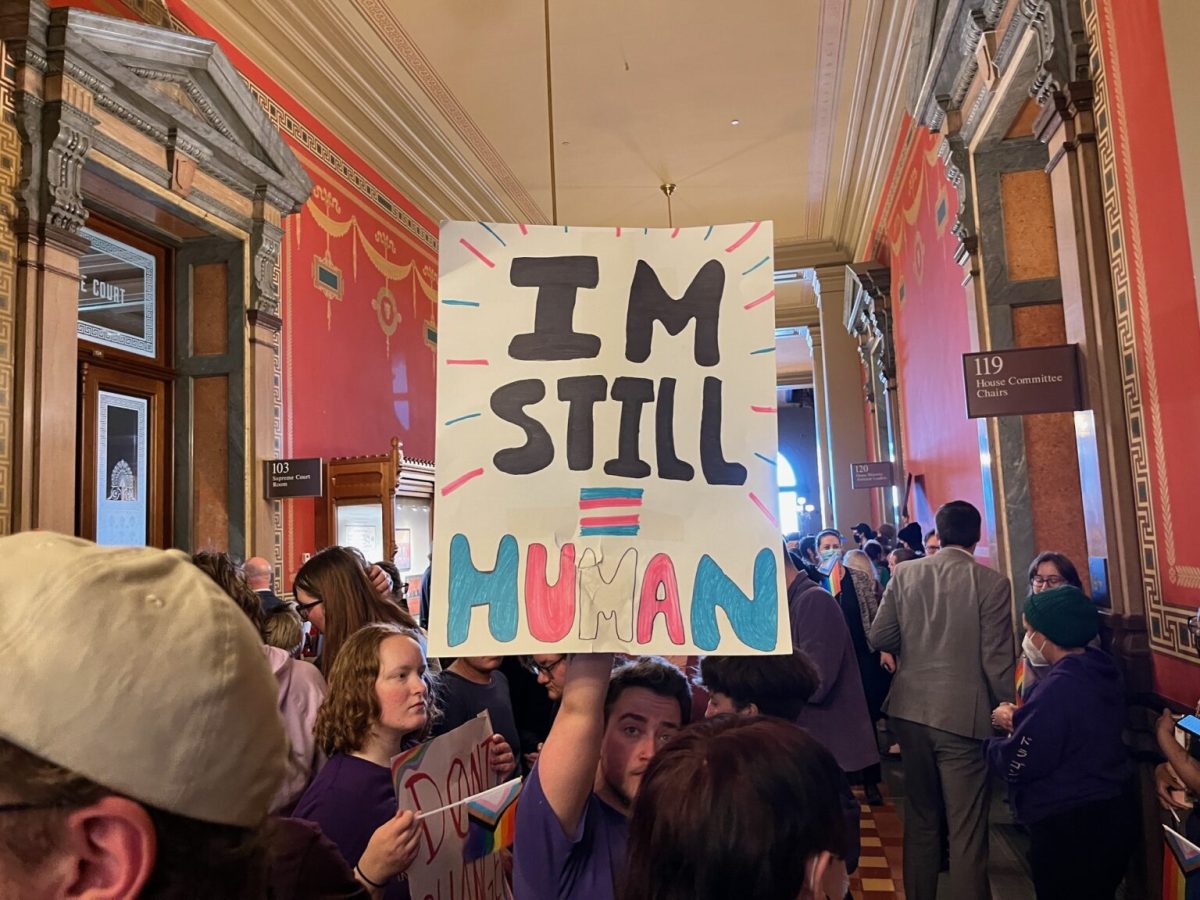United Methodist Church votes against same-sex weddings, ordination of LGBTQ people
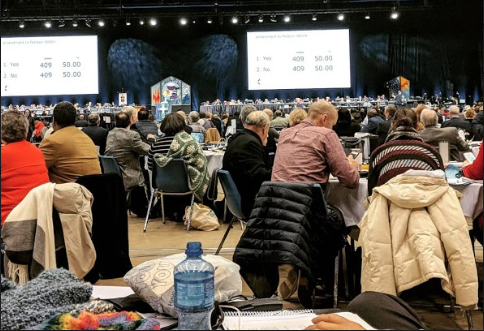
The General Conference of the United Methodist Church met on Feb. 23-26 in St. Louis, Missouri. It passed the Traditional Plan, which affirms the current policies of the church regarding inclusion of the LGBTQ community. Photo by Katie Dawson
February 28, 2019
Delegates from around the world gathered at the General Conference of the United Methodist Church to vote on plans regarding the inclusion of the LGBTQ community in the church.
The legislative body of the church met Feb. 23-26 in St. Louis, Missouri, and passed the traditional plan by a vote of 438 to 384, according to the United Methodist Church website .
“We passed the traditional plan which affirms the present policies in the Book of Discipline which do not allow same-gender weddings or the ordination of people who are openly gay or lesbian,” Chaplain Mara Bailey said.
The plan was a bundle of 17 petitions relating to the practice of homosexuality, clergy performing same-sex weddings and penalties for doing so, among other things. Although, much of the plan was declared unconstitutional.
“I think that there were only five of the 17 petitions that were constitutional so the vast majority of it is unconstitutional. The ones that are constitutional, one of them says that there are mandatory minimum penalties if you are convicted at trial of having performed a same-gender wedding or of being a self-avowed practicing homosexual,” the Rev. Katie Dawson, a voting delegate at the conference, said. “The first offense is a year suspension without pay and the second offense is you lose your credentials.”
The petitions were bundled together and voted on together as a whole plan.
“We voted as a body, as a General Conference that says you cannot separate them, which I think means if any part of the whole set of petitions is unconstitutional the whole thing is unconstitutional,” Dawson said.
The plan is still under review and will not go into effect until January 1, 2020.
“We did ask Judicial Council to look at them, but I don’t think they were going to look at them that day. My guess is that they will look at them at their regularly scheduled April meeting,” Dawson said.
The General Conference brings up concerns for many United Methodists, especially for students planning to go to seminary or students wondering about Simpson’s affiliation with the church.
Senior Katie Dean is a religion major planning to go to seminary in the fall to pursue prison ministry. She grew up in the Methodist Church and her family helped establish her local church.
“It’s heartbreaking,” she said. “It’s really disappointing to see that the church I call home does not reflect, the church body as a whole, does not reflect my values and beliefs, and the teachings that Jesus Christ calls us to love people, to love your neighbors, no matter what and to not take the opportunity to open the doors to the LGBTQ+ community, and allow them to serve next to you, doesn’t reflect the love that Jesus calls us to.”
Bailey also grew up in the United Methodist Church and has been in full-time ministry for nine years. She, along with students, feels betrayed by the decision.
“It is so clear to me that my spiritual home is Wesleyan,” Bailey said. “It’s with the United Methodist Church in terms of theology and the breadth of understanding, and I love our global connection for some of the great benefits it provides. Our presence in the world has been so meaningful for so long, and I feel betrayed because this is not reflective of that part of me.”
Concerns were also raised about the voice of young people in the church.
“I lament that it happened. I am lamented the way it happened, and I think it’s such a poor witness to everybody but to our young people especially, and that’s who I care a lot about because I work with them, and I hear their stories and I know this does not reflect their values,” Bailey said.
Since Bailey works with students, she can see how this decision affects the students and the LGBTQ community.
“I just have to name the continued harm that this does to LGBTQ+ persons. The church has already been complicit in harm and because of this will continue to be, and again, that’s not something I stand for and I feel like our theology is one that could be healing, but now my ability to offer that feels limited,” Bailey said.
Bailey also says there is a benefit to be in connection during this time of struggle and that there are people who believe this is not an element of the Methodist belief system.
“We are about so many more things and I feel like stepping up and saying we’re done with this church kind of dismisses all the rest of those values that we hold dear,” Bailey said.
Some have hope that there are members and clergy who currently support inclusion and who practice inclusion in their local churches.
“There are still so many people in this church who value and appreciate and believe in the call of our LGBTQ people and are going to continue to be willing to be in ministry and support ministry and love and uplift our queer folks. No matter what the general church decided that is not the end of United Methodists,” Dawson said. “That is not who we are.”



